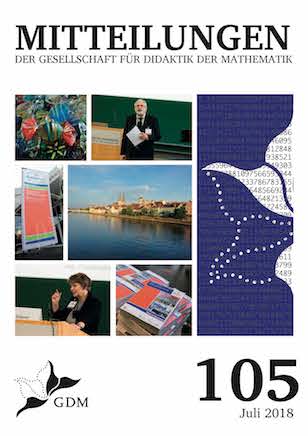The Challenges, Reforms, and Future Prospects of Elementary and Lower Secondary Mathematics Education in Germany
Abstract
Keeping its original form of an interview, this article presents a discussion about the challenges, reforms, and the prospects of mathematics education in Germany. The interview addresses aims and goals, contents and processes of mathematics teaching. Compared with the guiding ideas some years ago, more emphasis is put on modeling today. The idea that every student should have enough mathematics knowledge and the disappointing results of Germany in the PISA-2000 comparison may have caused this change. Moreover, Germany faces, like other countries do, some basic problems in mathematics teaching, addressed here as the balance problem, the coherence problem, the curriculum problem, the classroom organization problem, the computer problem, and the teacher education and development problem. The interview also tries to show how these problems are going to be tackled in Germany. For the prospects, being able to apply mathematics in the real world, being able to understand the mathematical concepts and rules, and having the potential of cultivating the own thinking are the main concerns of mathematical literacy in Germany.
Downloads
Veröffentlicht
Ausgabe
Rubrik
Lizenz
Autor/innen, die in dieser Zeitschrift publizieren möchten, stimmen den folgenden Bedingungen zu:- Die Autor/innen behalten das Copyright und erlauben der Zeitschrift die Erstveröffentlichung unter einer Creative Commons Namensnennung Lizenz, die es anderen erlaubt, die Arbeit unter Nennung der Autor/innenschaft und der Erstpublikation in dieser Zeitschrift zu verwenden.
- Die Autor/innen können zusätzliche Verträge für die nicht-exklusive Verbreitung der in der Zeitschrift veröffentlichten Version ihrer Arbeit unter Nennung der Erstpublikation in dieser Zeitschrift eingehen (z.B. sie in Sammelpublikation oder einem Buch veröffentlichen).
- Die Autor/innen werden dazu ermutigt, ihre Arbeit parallel zur Einreichung bei dieser Zeitschrift online zu veröffentlichen (z.B. auf den Homepages von Institutionen oder auf ihrer eigenen Homepage), weil so produktive Austauschprozesse wie auch eine frühe und erweiterte Bezugnahme auf das veröffentlichte Werk gefördert werden (siehe The Effect of Open Access).

